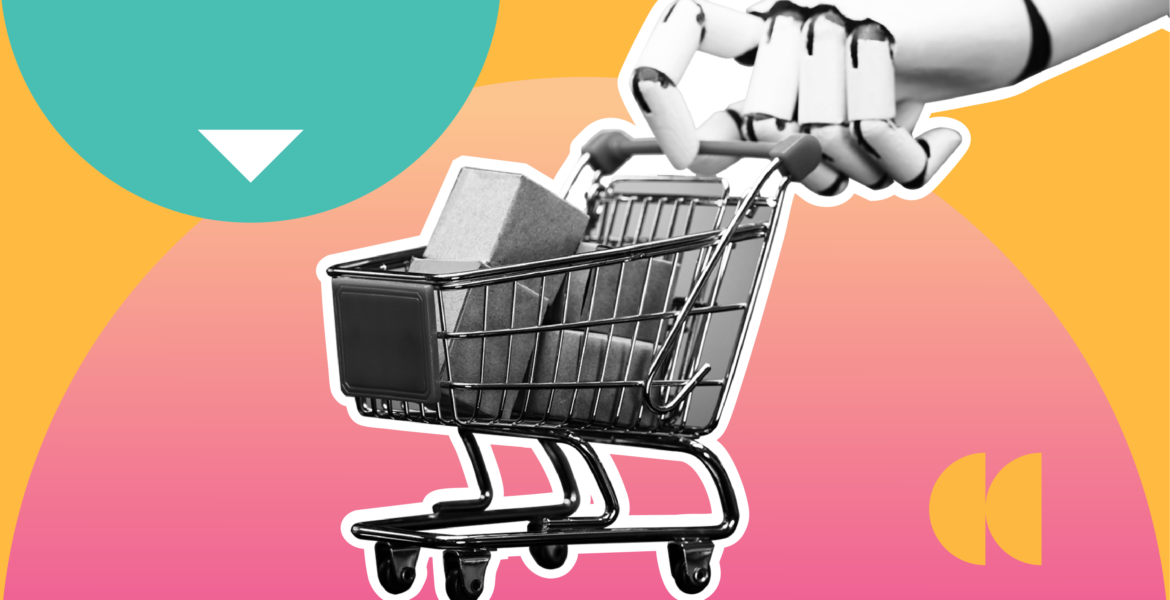By Derek Chew, Founder, Fullmoon Digital
The retail landscape is undergoing a seismic shift as artificial intelligence (AI) becomes increasingly intertwined with marketing and customer interactions. Retailers, including smaller businesses, are investing heavily in AI systems that promise game-changing efficiency and hyper-personalized shopping experiences. However, this AI revolution brings with it a significant concern – will the technology’s pursuit of data-driven automation come at the cost of the authentic human connections that are so vital to exceptional retail service?
AI’s Mounting Influence Can’t Be Ignored
The projected numbers illustrate AI’s mounting influence. Forecasts suggest the AI services market in retail could swell from $5 billion today to over $31 billion by 2028. This meteoric rise is caused by AI’s powerful ability to enable individualized product recommendations, dynamic pricing strategies, and optimized inventory management through advanced data analytics.
From virtual chatbots providing 24/7 customer support to algorithms meticulously analyzing consumer behavior patterns, AI is transforming how retailers operate and engage with shoppers in the digital realm.
Companies simply can’t ignore the alluring promise of AI – its ability to drive major efficiency gains, seamless scalability, and incredibly insightful data analysis. For retailers hoping to get ahead and differentiate themselves, leveraging AI’s powerful capabilities feels like a must-have competitive advantage.
Consumers Wary of Losing the Human Touch
Yet there is an undercurrent of trepidation amongst consumers about this AI-driven revolution.
A recent survey discovered that 82% of consumers are troubled by the potential privacy risks posed by AI systems analyzing their personal data. Perhaps even more critically, many worry that the very qualities that make retail experiences special – empathy, warmth, understanding – could be sacrificed at the altar of algorithmic personalization and automation.
At its core, retail thrives on forging authentic personal connections and crafting memorable interactions that transcend just transactions. Consumers fear an overreliance on AI could strip away this delightfully human element that breeds trust, loyalty, and differentiates the shopping experience.
To move forward, retailers are challenged with finding a delicate balance, enabling small retailers to tap into AI’s potential for optimization and customization, while also reinforcing – and enhancing – the human interactions that make them unique.
Fusing AI Capabilities & the Human Touch
To harmoniously integrate AI while retaining a distinctive personal touch, small retailers should:
- Pinpoint high-impact AI opportunities like automating routine tasks or using product recommendation engines.
- Invest in training staff on working seamlessly alongside AI systems.
- Blend AI and human assistance, such as using chatbots for simple queries but enabling human support for more complex needs.
- Prioritize transparency around ethical data practices to cultivate customer trust.
- Double down on training human employees on providing exceptional hospitality and personalized customer service.
Real World Examples
ASOS
Some pioneering retailers are already showing what harmonious human-AI integration looks like. Leading fashion brand, ASOS, uses an AI chatbot named Enki to field basic customer inquiries around the clock, but has human experts ready to take over for nuanced issues requiring empathy.
Zara
Another inspiring example of balanced AI-human integration comes from fashion retailer Zara. The company utilizes AI algorithms to forecast demand for its product lines. Based on these AI-generated predictions, Zara can then adjust production schedules and quantities within its supply chain. This allows them to ramp up manufacturing of items showing high demand according to the AI forecasts, while avoiding overproduction of styles the algorithms predict will be less popular. This allows Zara to ensure it stays optimally stocked with the right inventory – preventing shortages of hot sellers or a surplus of underperforming products. Yet the in-store experience remains squarely focused on human interaction and superior customer service.
Lowes
Additionally, Home improvement chain Lowe’s uses smart cameras to automatically detect low shelf inventory and alert staff to restock from the backroom. This simple but powerful application of AI for operational optimization frees up employees to focus on delivering exceptional customer service.
Leveling the AI Playing Field for Smaller Retailers
Certainly, while big corporations may have deeper pockets to dive into cutting-edge AI, there are now more accessible and affordable avenues for smaller retailers to kickstart their own AI journeys. The trick lies in finding solutions that seamlessly fit with current operations and offer tangible benefits.
Take, for instance, the emergence of plug-and-play AI tools like virtual product advisors and intelligent demand forecasting, which are now offered by many AI vendors. These tools can be easily integrated without the need for major technical overhauls, giving smaller businesses access to powerful capabilities that were once reserved for larger enterprises.
Moreover, there’s a growing network of AI consultants and implementation partners dedicated to serving the needs of small businesses. These experts offer strategic advice, staff training, and ongoing support to ensure that AI implementations not only meet business objectives but also deliver maximum returns on investment.
The Takeaway
The path forward is clear – pursuing AI capabilities is essential but cannot come at the expense of depersonalizing the retail experience. Businesses that thoughtfully balance AI’s benefits with human discernment and hospitality will define the gold standard for amazing, individualized customer experiences in the AI era.
About the Author
Derek Chew is the founder of Fullmoon Digital (https://fullmoondigital.com/ ). He is a recognized industry thought leader, digital marketer, consultant, and media strategist. He helps eCommerce and B2B companies of all sizes develop digital strategies, innovate, and grow their revenue. He lives in Winter Garden, Florida.








